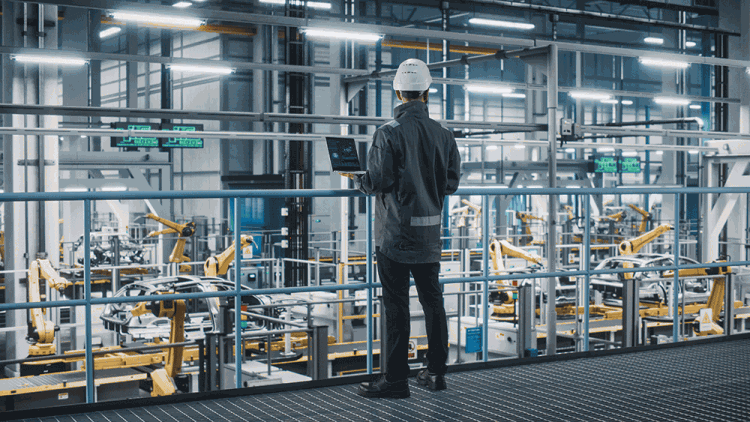
Intelligent technologies at a device layer are disrupting the manufacturing industry by managing and monitoring production outputs and keeping operational costs down. “The devices and software you install now will affect the future of your business. That’s why you need to make sure you’re procuring top quality brands and devices to transform the way you operate on a day-to-day basis,” says Adrian van Wyk, managing director of Referro Systems.

Referro Systems is a distribution and support company supplying quality branded electrical and automation software and hardware into the mining, industrial and commercial markets, for over two decades. Van Wyk continues: “Our deep understanding of manufacturing processes means we are able to provide ways to make your hardware and software procurement more efficient and ultimately, make you more competitive, whilst maintaining profitability.”
Today’s intelligent devices can speak to an entire network. They can provide variability that suits the specific production requirements, while minimising waste by providing contextualised insight at device layer around actionable real-time and diagnostic information.
“As a manufacturer you need to have as much timely, relevant and contextualised data at hand as possible to make calculated and cost-effective decisions about your business in real time. You also need to be able to have the flexibility to select fit-for-purpose software and hardware that does this and takes your future needs into account, whilst maintaining process flexibility,” says Van Wyk.
The following list, according to Van Wyk, identifies some of the main issues that require consideration when taking decisions on the type of devices that are right for your manufacturing operation.
Self-healing and replacing devices within systems are no longer sci-fi
When deciding on the type of devices for a manufacturing operation, it is essential to consider factors beyond self-healing and replacing capabilities. Functionality, reliability, scalability, interoperability, security, maintenance, cost-effectiveness, and regulatory compliance should all be taken into account. By evaluating these factors alongside self-healing, and replacing capabilities at device layer, informed decisions can be made to align with the operational requirements and long-term goals of the manufacturing operation.
Devices that interpret data so you don’t have to
Partner with a provider that offers devices that link into systems that do more than just share the obvious with you (for example, that a protection device has tripped). Now you can have access to data that is contextualised and doesn’t need deciphering − information that is understandable and allows you to make informed decisions that boost your production on the fly.
Devices that assist you to measure information to calculate the ROI
Intelligent devices can measure data that can be utilised to calculate a machine’s throughput performance. Contextualised data will allow you to adjust process variables to improve machine throughput and performance, and in so doing reduce costs and wastage.
Sustainable thinking is intelligent thinking
Think of the long term when procuring devices and software that take your future needs into account. Ensure sustainable expertise from reputable brands and organisations with the necessary insight to assist you in selecting the right devices to implement strategically, so you can still expand into more modern executions as your business and process needs change.
The lowest cost doesn’t necessarily mean the best for your business
“The bitterness of poor quality remains long after the sweetness of low price is forgotten.” While still being affordable, quality products and brands will mean you won’t battle with support, after-sales service and availability, and you will have access to the expertise needed to select the ideal product to meet your needs.

© Technews Publishing (Pty) Ltd | All Rights Reserved